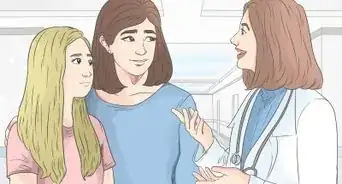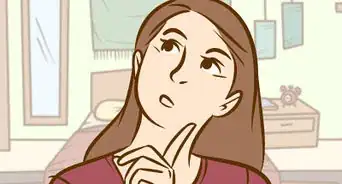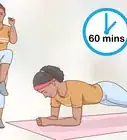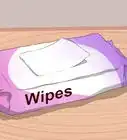This article was co-authored by Aimee Eyvazzadeh, MD, MA and by wikiHow staff writer, Jennifer Mueller, JD. Aimee Eyvazzadeh is a Fertility Specialist and the Founder of The Egg Whisperer Show, a fertility care program focusing on fertility education based in the San Francisco Bay Area. Her work has been featured in magazines such as People, Forbes, and Marie Claire, and she has been featured on the Today Show, Good Morning America, and CNN. She earned an MD from the University of California, Los Angeles in 2001, completed an OB/GYN residency at Harvard Medical School in 2005, and finished a fellowship in Reproductive Endocrinology and Infertility at University of Michigan, where she also completed an MPH.
There are 13 references cited in this article, which can be found at the bottom of the page.
wikiHow marks an article as reader-approved once it receives enough positive feedback. This article received 122 testimonials and 100% of readers who voted found it helpful, earning it our reader-approved status.
This article has been viewed 3,551,083 times.
That time of the month is never any fun, especially if it comes with painful and debilitating cramps. Fortunately, there are many different things you can try to relieve cramping. And while there's probably nothing you can do to prevent menstrual cramps, you can keep them from being as intense.[1]
Here are 13 effective ways to get rid of period cramps.
Steps
Expert Q&A
Did you know you can get premium answers for this article?
Unlock premium answers by supporting wikiHow
-
QuestionWhat if I have persistent cramps?
 Aimee Eyvazzadeh, MD, MAAimee Eyvazzadeh is a Fertility Specialist and the Founder of The Egg Whisperer Show, a fertility care program focusing on fertility education based in the San Francisco Bay Area. Her work has been featured in magazines such as People, Forbes, and Marie Claire, and she has been featured on the Today Show, Good Morning America, and CNN. She earned an MD from the University of California, Los Angeles in 2001, completed an OB/GYN residency at Harvard Medical School in 2005, and finished a fellowship in Reproductive Endocrinology and Infertility at University of Michigan, where she also completed an MPH.
Aimee Eyvazzadeh, MD, MAAimee Eyvazzadeh is a Fertility Specialist and the Founder of The Egg Whisperer Show, a fertility care program focusing on fertility education based in the San Francisco Bay Area. Her work has been featured in magazines such as People, Forbes, and Marie Claire, and she has been featured on the Today Show, Good Morning America, and CNN. She earned an MD from the University of California, Los Angeles in 2001, completed an OB/GYN residency at Harvard Medical School in 2005, and finished a fellowship in Reproductive Endocrinology and Infertility at University of Michigan, where she also completed an MPH.
OB/GYN & Fertility Specialist
-
QuestionWhat's the fastest way to get rid of period cramps?
 Aimee Eyvazzadeh, MD, MAAimee Eyvazzadeh is a Fertility Specialist and the Founder of The Egg Whisperer Show, a fertility care program focusing on fertility education based in the San Francisco Bay Area. Her work has been featured in magazines such as People, Forbes, and Marie Claire, and she has been featured on the Today Show, Good Morning America, and CNN. She earned an MD from the University of California, Los Angeles in 2001, completed an OB/GYN residency at Harvard Medical School in 2005, and finished a fellowship in Reproductive Endocrinology and Infertility at University of Michigan, where she also completed an MPH.
Aimee Eyvazzadeh, MD, MAAimee Eyvazzadeh is a Fertility Specialist and the Founder of The Egg Whisperer Show, a fertility care program focusing on fertility education based in the San Francisco Bay Area. Her work has been featured in magazines such as People, Forbes, and Marie Claire, and she has been featured on the Today Show, Good Morning America, and CNN. She earned an MD from the University of California, Los Angeles in 2001, completed an OB/GYN residency at Harvard Medical School in 2005, and finished a fellowship in Reproductive Endocrinology and Infertility at University of Michigan, where she also completed an MPH.
OB/GYN & Fertility Specialist
-
QuestionDoes my weight impact my cramping?
 Aimee Eyvazzadeh, MD, MAAimee Eyvazzadeh is a Fertility Specialist and the Founder of The Egg Whisperer Show, a fertility care program focusing on fertility education based in the San Francisco Bay Area. Her work has been featured in magazines such as People, Forbes, and Marie Claire, and she has been featured on the Today Show, Good Morning America, and CNN. She earned an MD from the University of California, Los Angeles in 2001, completed an OB/GYN residency at Harvard Medical School in 2005, and finished a fellowship in Reproductive Endocrinology and Infertility at University of Michigan, where she also completed an MPH.
Aimee Eyvazzadeh, MD, MAAimee Eyvazzadeh is a Fertility Specialist and the Founder of The Egg Whisperer Show, a fertility care program focusing on fertility education based in the San Francisco Bay Area. Her work has been featured in magazines such as People, Forbes, and Marie Claire, and she has been featured on the Today Show, Good Morning America, and CNN. She earned an MD from the University of California, Los Angeles in 2001, completed an OB/GYN residency at Harvard Medical School in 2005, and finished a fellowship in Reproductive Endocrinology and Infertility at University of Michigan, where she also completed an MPH.
OB/GYN & Fertility Specialist
Warnings
- If you have severe cramps that don't respond to any basic treatments, contact your doctor as soon as possible. Your cramps might be a symptom of a more serious underlying condition.[26]⧼thumbs_response⧽
References
- ↑ https://my.clevelandclinic.org/health/diseases/4148-dysmenorrhea
- ↑ https://www.mayoclinic.org/diseases-conditions/menstrual-cramps/diagnosis-treatment/drc-20374944
- ↑ https://www.uofmhealth.org/health-library/aq0001
- ↑ https://www.ncbi.nlm.nih.gov/pmc/articles/PMC6214933/
- ↑ https://www.uofmhealth.org/health-library/aq0001
- ↑ https://www.womansday.com/health-fitness/womens-health/g26496857/how-to-deal-with-cramps/
- ↑ https://bmcwomenshealth.biomedcentral.com/articles/10.1186/s12905-021-01184-w
- ↑ https://bmcwomenshealth.biomedcentral.com/articles/10.1186/s12905-021-01184-w
- ↑ https://www.plannedparenthood.org/learn/health-and-wellness/menstruation/what-can-i-do-about-cramps-and-pms
- ↑ https://www.uofmhealth.org/health-library/uz2255
- ↑ https://www.youtube.com/watch?v=4JaCcp39iVI
- ↑ https://www.pennmedicine.org/updates/blogs/health-and-wellness/2019/december/health-benefits-of-tea
- ↑ https://my.clevelandclinic.org/health/diseases/4148-dysmenorrhea
- ↑ https://www.acog.org/womens-health/faqs/dysmenorrhea-painful-periods
- ↑ https://www.uofmhealth.org/health-library/aq0001
- ↑ https://my.clevelandclinic.org/health/diseases/4148-dysmenorrhea
- ↑ https://kidshealth.org/en/kids/period-cramps.html
- ↑ https://www.pcrm.org/good-nutrition/nutrition-information/using-foods-against-menstrual-pain
- ↑ https://www.plannedparenthood.org/learn/health-and-wellness/menstruation/what-can-i-do-about-cramps-and-pms
- ↑ https://www.pennmedicine.org/updates/blogs/health-and-wellness/2019/december/health-benefits-of-tea
- ↑ https://www.mayoclinic.org/diseases-conditions/menstrual-cramps/diagnosis-treatment/drc-20374944
- ↑ https://www.acog.org/womens-health/faqs/dysmenorrhea-painful-periods
- ↑ https://www.plannedparenthood.org/learn/health-and-wellness/menstruation/what-can-i-do-about-cramps-and-pms
- ↑ https://www.plannedparenthood.org/learn/health-and-wellness/menstruation/what-can-i-do-about-cramps-and-pms
- ↑ https://my.clevelandclinic.org/health/diseases/4148-dysmenorrhea
- ↑ https://www.acog.org/womens-health/faqs/dysmenorrhea-painful-periods
About This Article
If you’ve already taken or you don’t want to take a painkiller, you can help ease your menstrual cramps by eating a banana, fish, or other foods that are rich in potassium, but you should avoid caffeine, which can make cramps worse. Getting 30 minutes of brisk exercise such as walking or jogging can also help relieve cramps. If you’re at home, take a warm Epsom salt bath or place hot water bottles on your stomach and lower back. To learn how supplements can help get rid of cramps, keep reading!
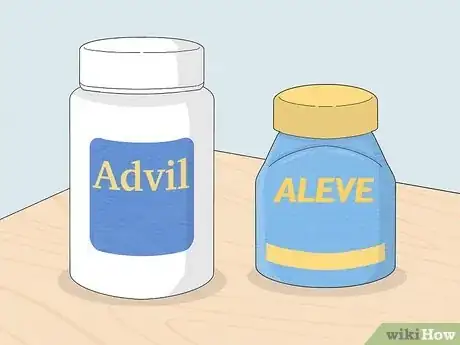
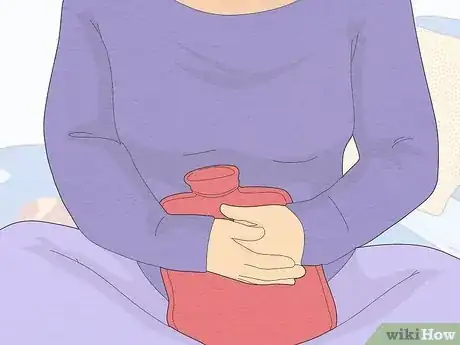
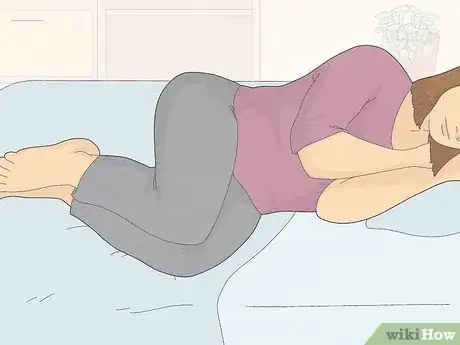
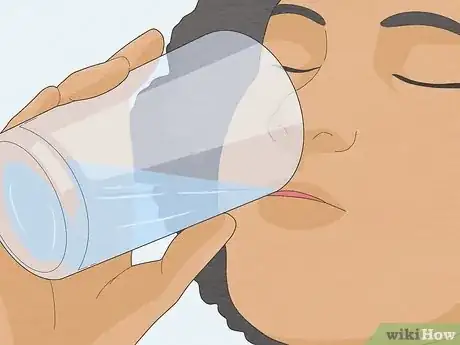
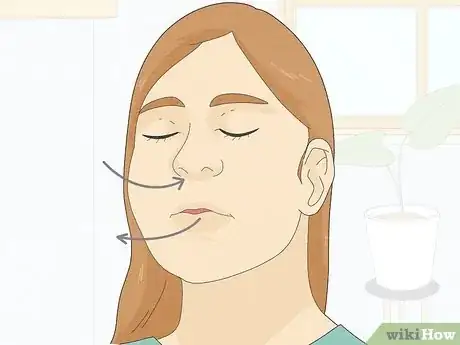
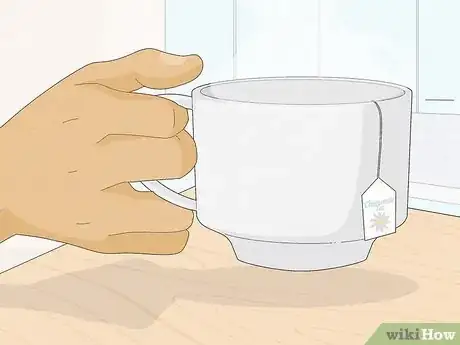
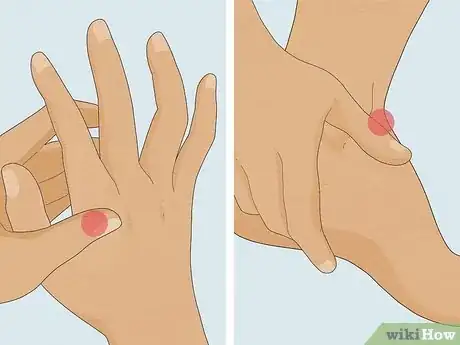
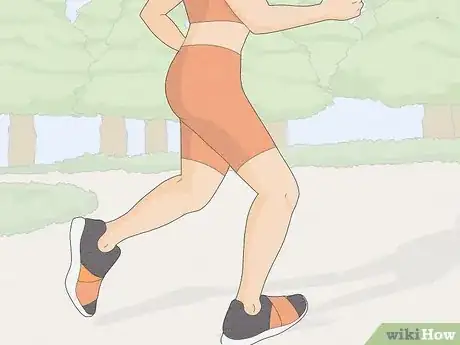
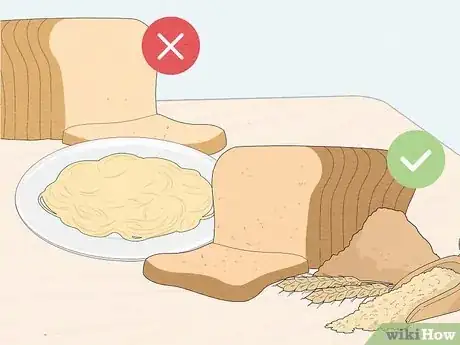
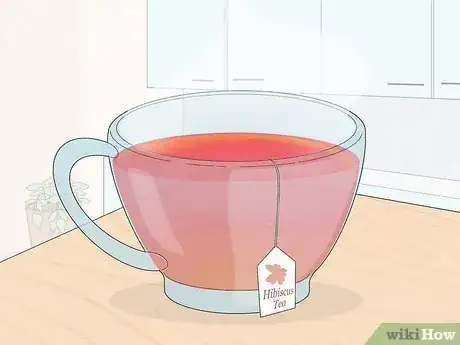
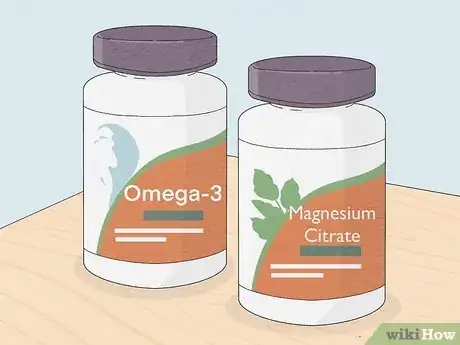
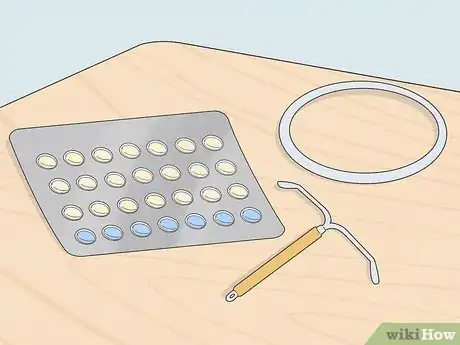
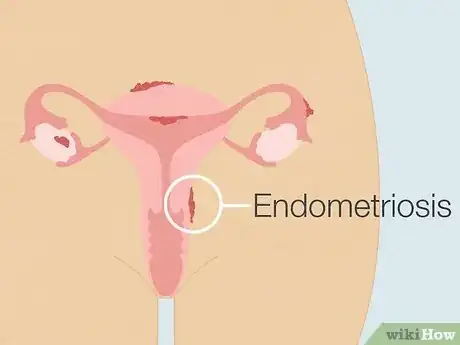
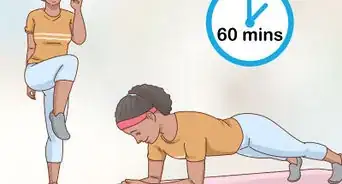


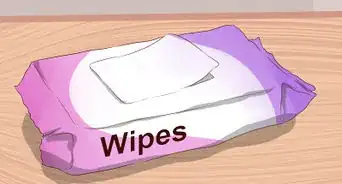
-Step-21.webp)



